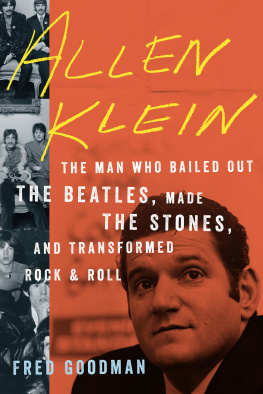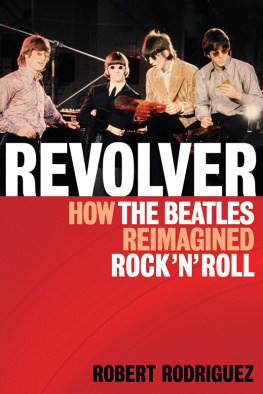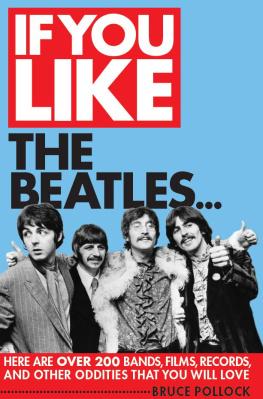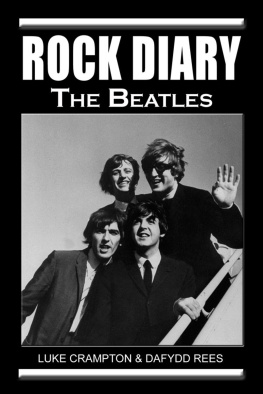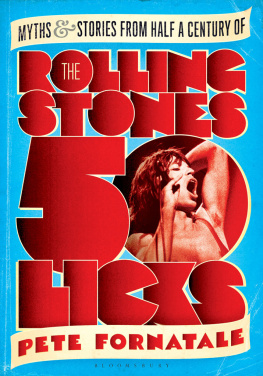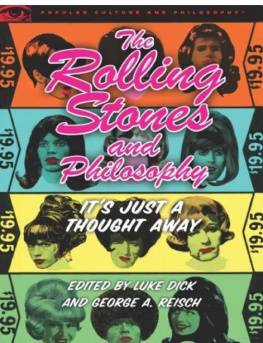Copyright 2015 by Fred Goodman
All rights reserved
For information about permission to reproduce selections from this book, write to Permissions, Houghton Mifflin Harcourt Publishing Company, 215 Park Avenue South, New York, New York 10003.
www.hmhco.com
The Library of Congress has cataloged the print edition as follows:
Goodman, Fred.
Allen Klein : the man who bailed out the Beatles, made the Stones, and transformed rock & roll / Fred Goodman.
pages cm
An Eamon Dolan Book.
Includes bibliographical references and index.
ISBN 978-0-547-89686-1 (hardcover) ISBN 978-0-547-89689-2 (ebook)
1. Klein, Allen, 19312009. 2. Sound recording executives and producersBiography. 3. Rolling Stones. 4. Beatles. I. Title.
ML 429. K 58 G 66 2015
781.66092dc23
[B]
2015007138
v1.0615
Jacket design by Brian Moore
Jacket photographs C. Maher/Getty Images (Allen Klein); John Downing/Getty Images (the Beatles); Michael Ochs Archives/Getty Images (the Rolling Stones)
Lines from Bob Dylans License to Kill copyright 1983 Special Rider Music.
Quotes taken from conversations with Allen Klein used expressly by written consent of ABKCO Music & Records, Inc. All rights reserved.
For Jeffrey Ressner and Eddie Karp
The devil is a spirit that is neither good nor evil; he is considered to be the guardian of most of the secrets that are accessible to human beings and to have strength and power over material things. Since he is a fallen angel, he is identified with the human race, and he is always ready to make deals and exchange favors.
PAULO COELHO , THE PILGRIMAGE
Now he worships at an altar of a stagnant pool
And when he sees his reflection, hes fulfilled
For man is opposed to fair play
He wants it all and he wants it his way.
BOB DYLAN, LICENSE TO KILL
PROLOGUE
London, August 1969
EVERYONE IN THE WORLD wants to be a Beatle. Everyone, perhaps, except the Beatles.
Their musical and cultural impact is nearly unimaginable and unlikely to be duplicated soon. Not merely famous and successful, the Beatles have transcended music and caused listeners around the world to take a fresh look at their own possibilities and expectations. For that they are adorednot in the manner of pop or film stars but as saints, the fathers of nations, or any unspoiled signs of hope and possibility are adored. But while they may be a light to the world, the Beatles are also a deeply troubled business partnership. They have complicated problems they are unequipped to handle, many as broad and unique as their success. When no road maps exist, who will drive the car?
Until two years ago the driver was Brian Epstein, their manager. But he died at thirty-two of an accidental drug overdose. A gifted impresario and earnest advocate, Epstein had recognized the diamond in the rough, overseen its cutting and buffing. But he was nowhere near as visionary in business. His deals for the band were consistently substandardnot just for the biggest and most influential group in the world, but for any group. Still, he had helped the Beatles to become stars, which was as much as theyd dreamed of at the start, and they had trusted him. Though shocked by the unexpected tragedy of Brians death, John Lennon instantly foresaw a second calamity. Weve fuckin had it, he told himself.
Since then, the groups finances have grown increasingly precarious. Attempting to run their own affairs, the Beatles formed Apple Corps, a move that now looms as a disaster. Conceived in a burst of optimism and largesse as a new kind of creative company for a new kind of world, Apple is wide ranging, ill conceived, and out of control. Caught in a vise of Epsteins inferior and poorly paid contracts on one side and the folly of their own making that is Apple on the other, Lennon saw bankruptcy ahead. But nowfinally!after years of not knowing where to turn, Lennon has found his man in Allen Klein.
Blunt-featured and barrel-chested with a full head of dramatically dark, pomaded hair, Klein doesnt share his clients flair for fashion. He prefers sneakers and sweatshirts to paisleys and Nehru jackets. But while Klein doesnt look like the most powerful and controversial player in the music business, he is in fact a ruthless and brilliant businessman given to bold talk, bolder strategies, and a confrontational style that ranges from brusque to insulting.
Klein has been making regular forays to London, selling himself to producers and artists and battling the business practices of record companies, music publishers, and booking agents when no one else would. He is more interested in results than rules. Dont talk to me about ethics, Klein says dismissively. Every man makes his own. Its like a war. You choose your side early and from then on, youre being shot at. The man you beat is likely to call you unethical. So what? He is an obsessive chess master who keeps opponents on the back foot with a painstakingly constructed game of seemingly endless litigation, negotiation, and obfuscation. To the hidebound, class-conscious record executives and press of 1960s Britain, he embodies every clich of ill breeding and grotesquerie that can be conjured by the phrase New York Jew, and they detest him. Yet what most upsets the establishment is that he is right.
For more than a decade, Klein has been arguingvociferously and alonethat rock and pop artists are grossly underpaid, that the industry infantilizes them in order to cheat them. Though a brawler by temperament, he is an accountant by training, a gimlet-eyed skeptic decoding the record industrys rules and ledgers and rewriting them in the artists favor. Because of Klein, his clientsmost notably Sam Cooke and the Rolling Stoneshave taken once-unthinkable giant steps, reaping bonanzas and gaining creative control over their work and careers. In 1965, when the Beatles were still receiving a royalty of a penny a recordsplit four waysKlein negotiated record deals for the Stones worth over two and a half million dollars. This did not escape the notice of either Lennon or his partner Paul McCartney. Lennon is a big fan of Klein, but McCartney doesnt like him; he finds Klein abrasive, and he knows that Klein demands an outsize share and habitually finds creative ways to cut himself a piece of an artists holdings and career.
John, otherwise suspicious of businessmen, has a special bond with the up-from-the-streets Klein. He loves that he comes on like gangbusters. Allen doesnt confine himself to beating up adversaries; an adviser in a business lousy with professional handholders and toadies, hes the pistol-packing, face-slapping tough guy from an old movie. Lennon is ready to give Klein carte blanche; Allen will be the answer, the bulwark and saviorthe gunslinger they so desperately need. George Harrison and Ringo Starr agree, and in the spring of 1969, Allen Klein becomes the Beatles business manager.
For Klein, who has yearned, strategized, and schemed for years to manage the Beatles, its more than sweet. Its validation. Like everyone else in the world, Klein wants to be a Beatlejust not for the same reasons. Now he is the undisputed master of the music business, managing the affairs of the Beatles and the Rolling Stones. He may be more powerful and transformative than anyone before or after him in the music industry. For him, money alone has never been proof of thathe likes it, wants it, and spends it lustily, but doesnt use it to keep score. It is the work, the groundbreaking deals that only he can conjure, that tells the tale.
He certainly has his work cut out for him now. The Beatles affairs are a mess, an unwieldy, seaweed-slippery anchor chain that defies movement let alone unwinding. Management contracts, publishing and record dealseverything is twisted together and problematic. Just dismantling and restructuring Apple could keep him busy for a year. It has already kept him away from his Broadway office and in London for months. And he
Next page
